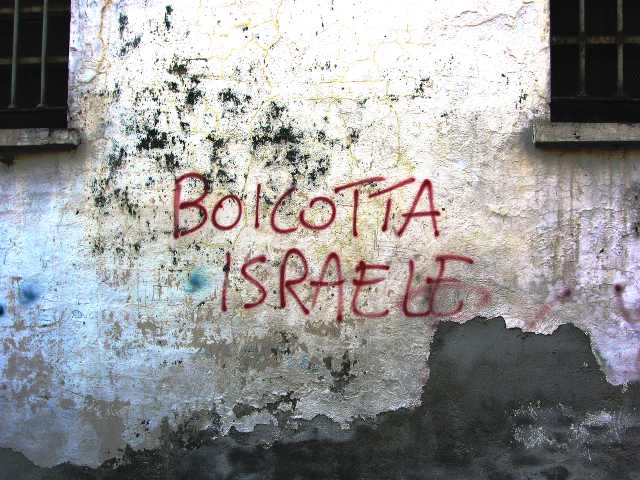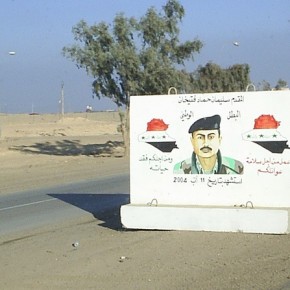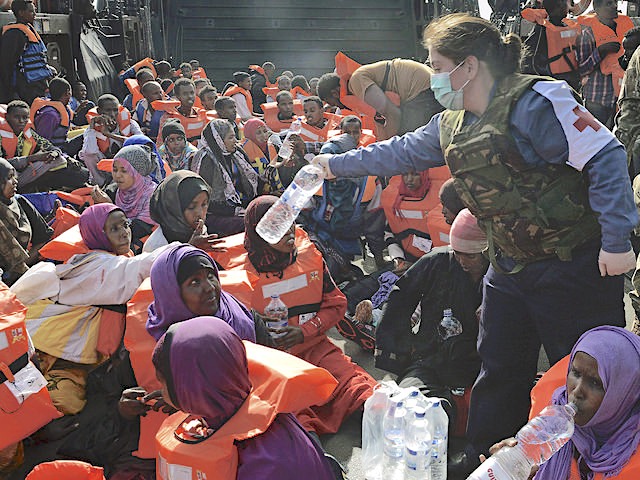Daft Punk are playing in the background. A young couple is nibbling on croissants, speaking to one other in French. My father brings me a cappuccino from the bar, with a Lavazza advert on the cup. It tastes like the real thing. I down it in two gulps. As though on cue, my stepmother looks at me and says, “You’d be forgiven for thinking you were in Europe.”
Certainly, for a good many Israelis, that’s the case. Europeans, in the Middle East, that is, to their citics. In this instance, on Highway 6, in between Hadera and the Arab village of Baqa al-Gharbiyye. The vaunted separation wall sits nearby, as though a reminder of what separates the Europe of road stops like this from the Palestinian Levant on the other side.
Whenever I come across pro-boycott messaging, I’m not so much upset, as I am reminded of this very scene. I don’t feel so much guilty as I do alienated. From being able to enjoy these moments, as cosmopolitan creature comforts; from knowing what my pleasures say about my relations with the people living nearby, on the other side of the security barrier.
Particularly when I’m back in Europe, and encounter solidarity flyers and street art captured in photos like these. Taken in the Italian city of Turin, in 2012-13, however routine and didactic, there’s something intensely personal about them that I just can’t shake. I find myself ordering tea more often, instead. There’s something less conflictual about it.

FOR AN ENDURING PEACE IN THE MIDDLE EAST
FOR ONE STATE SOLUTION IN PALESTINE
BOYCOTT ISRAEL!
On July 9th, 2005, a plea from more than 150 Palestinian civil society organizations opened the international campaign to boycott Israel, as a means of opposing the oppressive regime in Palestinian territory, following the example in South Africa, of Nelson Mandela, in ending the apartheid [separating] white [from] black.
Today, the campaign is continuing relentlessly all over the world, at various levels and, in some cases, it has achieved good results. It is a long [journey] but, together with international mobilization, and with the pressure of the Arab Spring, it’s [possible to foresee] the abolition of the Israeli regime of apartheid, the return of Palestinian refugees expelled from their lands since 1948, and to the foundation a single state in Palestine, in which Jews and Arabs have equal rights, though [for] now the latter have to undergo repeat humiliation, suffering, [and] killing.
Even a small gesture, like denouncing [the sale] of a product that supports the Israeli war economy, can help to make this perspective more real
DON’T BUY PRODUCTS FROM COMPANIES WHICH DO MOST OF THEIR BUSINESS WITH ISRAEL:
CLOTHING: Armani, Timberland, Versace.
FOOD: Alemagna, Barilla, Buitoni, Campari, Carmel-Agrexco (Israeli), Coca-Cola, Danone, Ferrero, Findus, Jaffa (Israeli), Illy, Lavazza, Levissima, Loacker, Motta, Nestlè, Pepsi-Cola, Rio-Mare, San Bernardo, San Pellegrino, Segafredo, Vismara.
COSMETICS – HYGIENE: Colgate, L’Oreal, Palmolive, Ahava-Sephora.
ELECTRICAL APPLIANCES: Delonghi, Merloni, Scavolini, Sodastream (Israeli.)
TOYS: Clementoni, Bburago.
MEDICINES: Teva (Israeli).
FOOD SERVICES: McDonalds.
CIGARETTES: Marlboro, Philip Morris.
TELEPHONY: Motorola, Nokia, Telecom-TIM.
PS: As a general [recommendation], in order to make a conscious choice, let’s boycott products whose country of origin is not indicated.
For more info, visit: www.bdsitalia.org [and] www.forumpalestina
Translated from the Italian by Giulia Pace. Introduction and photographs courtesy of Joel Schalit.





